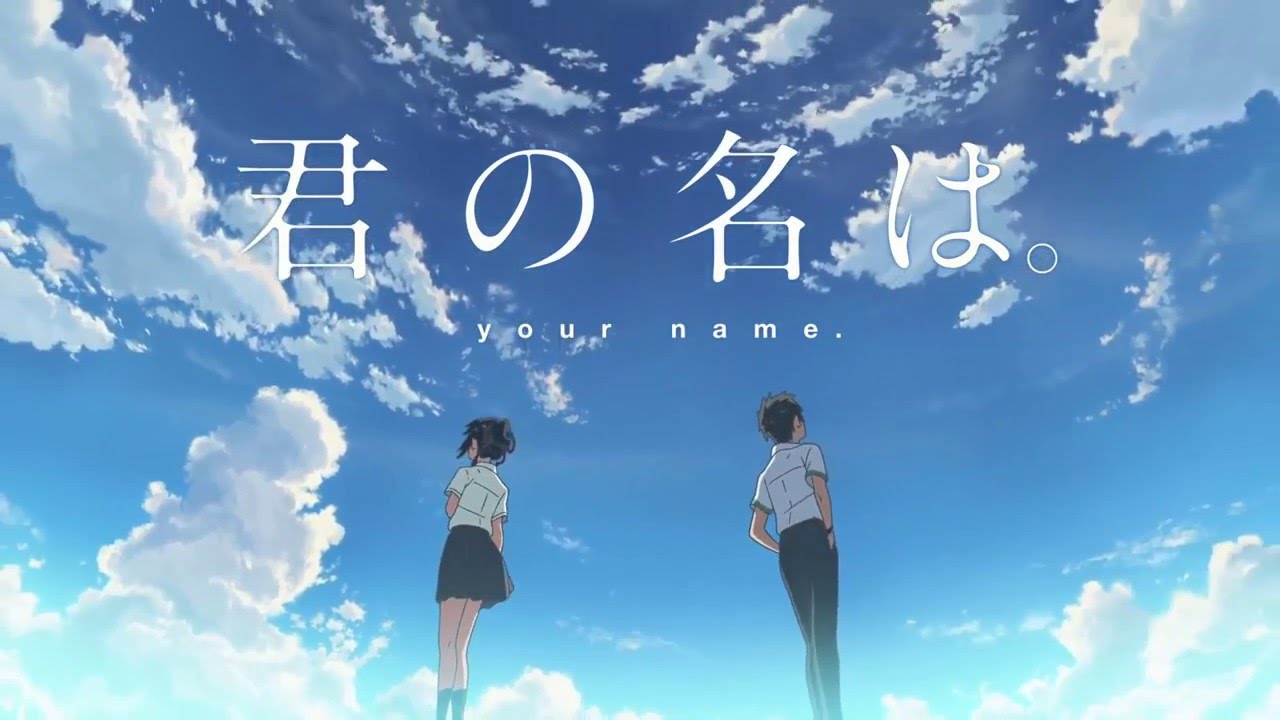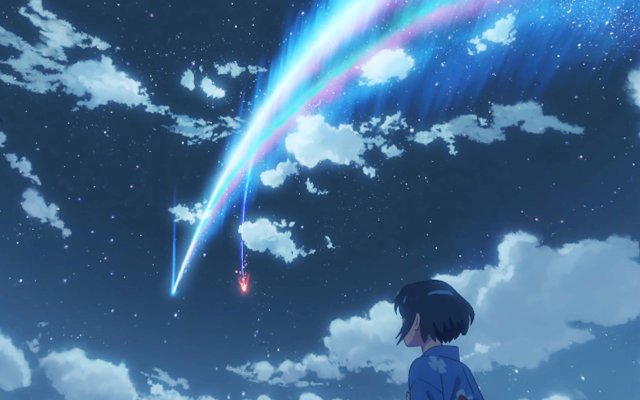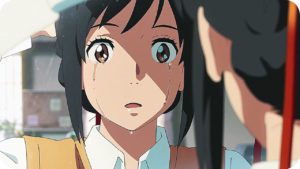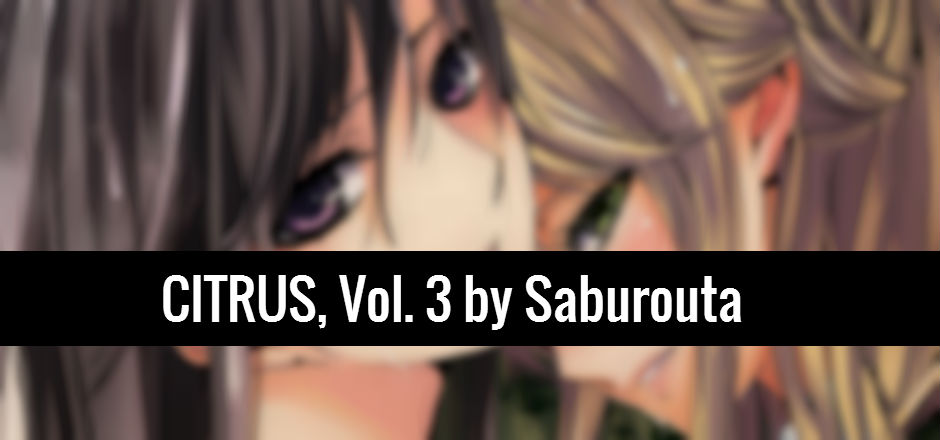Kimi no Na wa. (君の名は。) or Your Name. was officially released in the U.S. this past weekend, and if you happen to live in a city that’s showing it, I highly recommend going.
It’s an anime film written and directed by Makoto Shinkai—whose previous directorial works include Voices of a Distant Star (2002), The Place Promised in Our Early Days (2004), 5 Centimeters Per Second (2007), Children Who Chase Lost Voices (2011), and The Garden of Words (2013), to name only a few. Your Name was first shown at Anime Expo in Los Angeles in July 2016 and released in Japan in August 2016, but it finally made its U.S. and international debut on April 7, 2017.
With a well-received and complementary soundtrack—composed by Noda Yojiro, played by the Radwimps, and available on Spotify—and a tear-jerking story aimed at a “Millennial” audience, Your Name has broken numerous box office expectations and has been praised by critics both inside and outside of Japan. According to The Japan News, as of December 7, 2016, the film surpassed the ¥20 billion mark at the Japanese box office placing it in fifth place for all-time domestic box office revenue, second to Hayao Miyazaki’s Spirited Away.
If this isn’t enough to convince you that this film is worth seeing, then perhaps Shinkai’s role as director will. Most anime fans have stumbled over his films over the years. The Place Promised in Our Early Days was especially acclaimed winning various honors, including Award for Art in Seiun Award at the 44th Japanese SF Convention. Admittedly, Shinkai’s works haven’t always appealed to me personally. They are gorgeously rendered, but the stories are often disjointed and leave me with a lingering sense of doubt. However, I have noticed that his style has evolved over the years, and I can appreciate the inspiration he gets from Miyazaki.
Voices of a Distant Star, for example, was too short for me—I wanted to know more about its peculiar setting—and Children Who Chase Lost Voices felt too much like a Studio Ghibli ripoff for my taste. It wasn’t until The Garden of Words, and now Your Name, that I felt something substantial and weighty in Shinkai’s work. The Garden of Words, specifically, took the flimsy, insipid, but pleasantly ethereal feeling and visuals of Shinkai’s previous films and added a generous dose of impactful emotion to the story. Your Name is the same in this respect, but with the added bonus of a deeper and more thoroughly plotted storyline.
Your Name centers on the lives of two high school students, Miyamizu Mitsuha and Tachibana Taki. Mitsuha lives in rural Japan in the mountains, while Taki lives in bustling Tokyo. The two dream of different lives, especially Mitsuha who wishes she lived in the city. They begin to switch bodies sporadically, at first believing their initial experience was simply a lucid dream, but as the story progresses, they become more and more intertwined in one another’s lives.
Anime Feminist has an excellent article on body-swapping and ecchi punchlines in Your Name, so I won’t cover this topic any further here. What I will say is that the narrative is similar to Kokoro Connect, with its body-swapping, and Anohana: The Flower We Saw That Day, with its tragedy, and there’s a tinge of fantastical elements reminiscent of The Girl Who Leapt Through Time.
Although it may not appear so at first blush, the story is highly influenced by Japanese society, like all anime of course. This is something that as a “Western” viewer we must not forget, even though there are numerous lessons we can relate to in the story. Many of the issues the characters face, including their strained parental relationships and the juxtaposition of life in urban versus rural settings, are applicable to the lives of teenagers around the world. Yet many of the story’s elements and themes are solely Japanese.
For instance, Shinkai drew inspiration for the story from the works of the Heian-period poet Ono no Komachi. I’ve stumbled upon Ono no Komachi before in some books of Japanese poetry in English translation that I love. My favorite poem by Ono no Komachi goes:
The flowers withered
Their color faded away,
While meaninglessly
I spent my days in the world,
And the long rains were falling.
(KKS II: 113, Translated by Donald Keene in the Anthology of Japanese Literature)
My knowledge of Ono no Komachi, however, is limited, and I would never have known of this influence if Shinkai hadn’t discussed it in interviews. The poems Shinkai most likely referenced are Ono no Komachi’s other tanka in the Kokinshū (c. 905), specifically her poems describing meeting her lover in a dream in KKS XII: 552 and KKS XII: 553:
Was I lost in thoughts of love
When I closed my eyes? He
Appeared, and
Had I known it for a dream
I would not have awakened.
(KKS XII: 552)As I dozed
The man I love
Appeared, so
It is dreams that
Have begun to comfort me.
(KKS XII: 553)
Tofugu has an excellent article on Ono no Komachi and the standard of Japanese beauty if you’re interested in learning more about her.
Your Name is stunningly beautiful, airy, and musical, whilst being earnest and a little melancholy. Seeing it on the big screen was moving, and it definitely would be appealing to non-anime fans, too. It will make you laugh, it will make you cry (I completely bawled, and I rarely cry during films, although I’ve started to more often as I get older—see The Book Thief), and it will make you think about what it’s like to fall in love and really fight for it.
Shinkai has been lauded as the next Miyazaki, even though he personally doesn’t agree with this designation. And I’d agree with him, for while Your Name does contain some similarities to Miyazaki, namely the exquisite animation and strong female lead, this doesn’t denote Shinkai as the next Miyazaki. He has a style all his own, in both art and story, and while I absolutely adored Your Name, so much more than any of his other films, I’m excited to see what he does next.
Your Name is being released in the U.S., both subtitled and dubbed, by Funimation.
Story: 5 out of 5 stars
Art: 5 out of 5 stars
Overall: 5 out of 5 stars
—
Rine Karr is an Anime Writer at Girls in Capes. She’s a writer and aspiring novelist by moonlight and a copyeditor by daylight. Rine loves good food, travel, and lots of fiction, especially novels, anime, manga, video games, and films. She’s also the Chief Copyeditor and an occasional contributor at Women Write About Comics.
[coffee]









